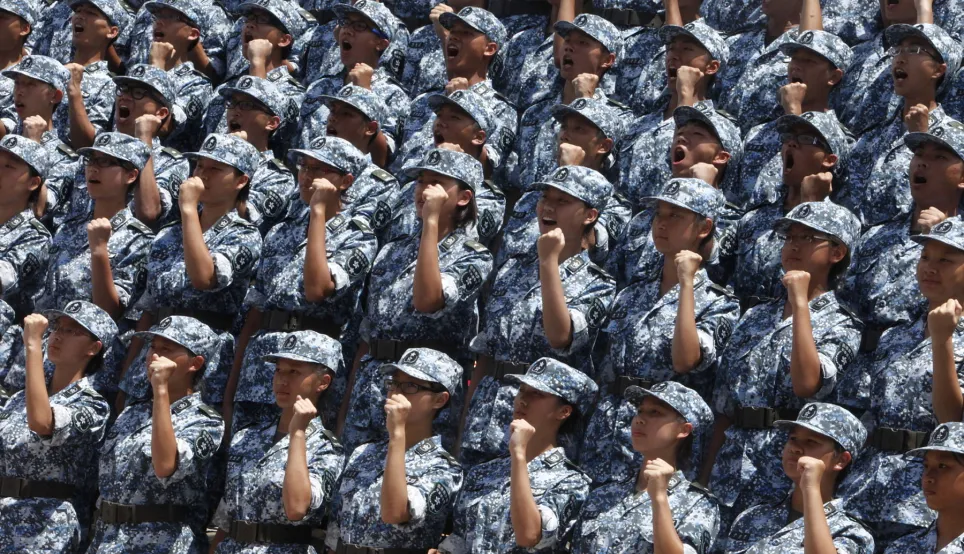Hong Kong secondary school students attend a Chinese military passing-out ceremony in Hong Kong, July 2011. ©EPA / Alex Hofford
On 18 June 2018, the ICRC will present findings from its landmark study, The Roots of Restraint in War. Based on two years of research collaboration between the ICRC and six distinguished scholars, it identifies sources of influence on the behavior of soldiers and fighters in various types of armed forces and groups, ranging from those with a highly centralized structure through to those embedded within their communities.
This new report is an update of the 2004 study, The Roots of Behavior in War.
Background
Drawing on eight case studies across five countries, The Roots of Restraint in War investigates how formal and informal norms condition the behavior of different kinds of armed forces or groups. Ultimately, it provides a framework of analysis for humanitarians to help them identify which approach is best suited to a group's particular structure and socialization mechanisms in order to promote restraint.
This launch event will showcase the importance of combining rigorous empirical research with a solid understanding of the possibilities and constraints that organisations like the ICRC face as they seek to encourage compliance with the norms of international humanitarian law.
Welcome and Introduction
- Professor Gilles Carbonnier, Vice-President, ICRC
From Research to Policy and Practice
- Dr Helen Durham, Director of International Law & Policy, ICRC
Presentation of Roots of Restraint in War Study
- Dr Fiona Terry, Head of the Centre for Operational Research & Experience, ICRC
- Dr Brian McQuinn, Adviser on Non-State armed groups, ICRC

